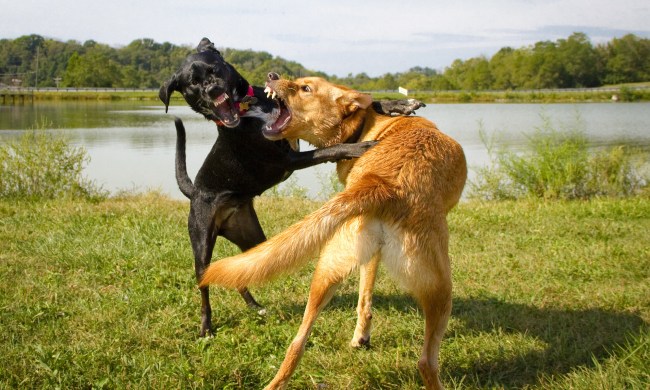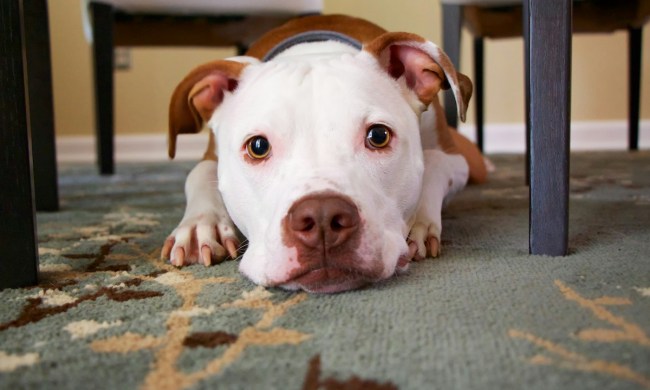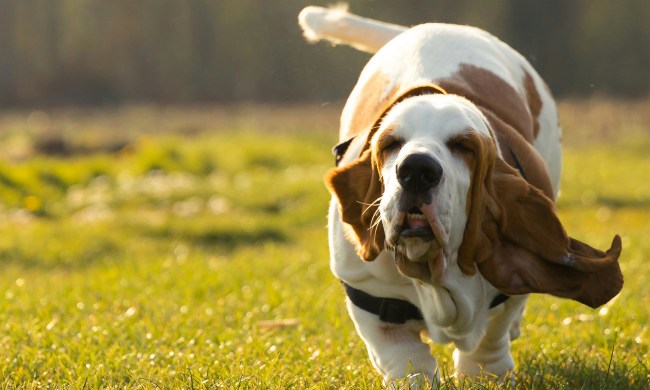Golden retrievers are family dogs through and through. They’re eager to please, intelligent, and always up for something fun. Training your golden retriever puppy is a matter of working with its strengths and having the patience to see it through.
Your golden retriever puppy’s first order of business is learning to go to the potty outside. Not only can you train your golden to go outside, but you can train it to use the same, designated spot on command. Let’s go through some necessary steps to get the ball rolling.
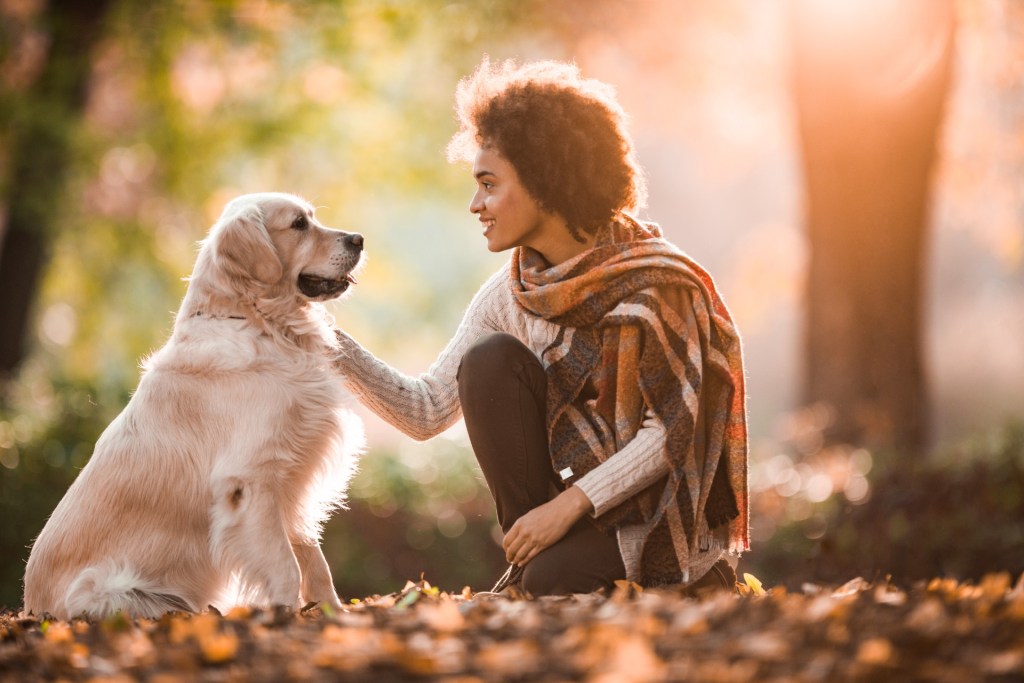
Stay positive
Before you start any kind of training, you should understand the personality of dogs. The balance should always tip toward the positive rather than the negative. If you happen to catch your dog going to the bathroom inside, you can correct him firmly yet gently, but it does no good to punish your dog for something you don’t see happen.
Instead, focus on what your dog is doing well. If your puppy goes outside whether you commanded or not, whether you were in the middle of training or not, that’s a reason for praise. Tell your golden what a good boy or girl it is and offer a treat right after the deed is done.
Be consistent
If you want to teach your golden to go outside, you must be consistent. Set an alarm for certain times of the day to go out, so your golden has plenty of chances to get it right. Be realistic about how long your golden can hold it.
If you’re home, going out every two hours could be an excellent place to start. If you aren’t home, coming back at lunch may be a suitable alternative, especially if you plan to crate train your puppy.
You may want to wait to get your puppy when you’re going to be home for a week or so or if you have some time off. That will allow you plenty of time to help your puppy make the transition to following the rules of your house.
Use the potty command
To help ensure your golden does its business, add in the potty command. It can be as simple as “go potty” or you can make it your own, but it should be a consistent command.
Each time your dog eliminates after the command, offer praise and treats. After a few weeks, your golden should get the hang of the command, and you’ll be able to help things along even when your golden is super energetic or curious.
Be realistic
Your puppy won’t learn overnight. It could take some consistent practice for it to go outside, and it may arrive in stages. Your puppy may have trouble at night for a little bit until it understands the schedule and is able to make better decisions.
If you find that your puppy is having a lot of trouble getting the command, take a look at your process. Are you expecting your puppy to go too long between potty breaks? Are you inconsistent with your praise or timing? Sometimes, a simple change in your process could finally help your pet over that hurdle.
How do I train my golden retriever?
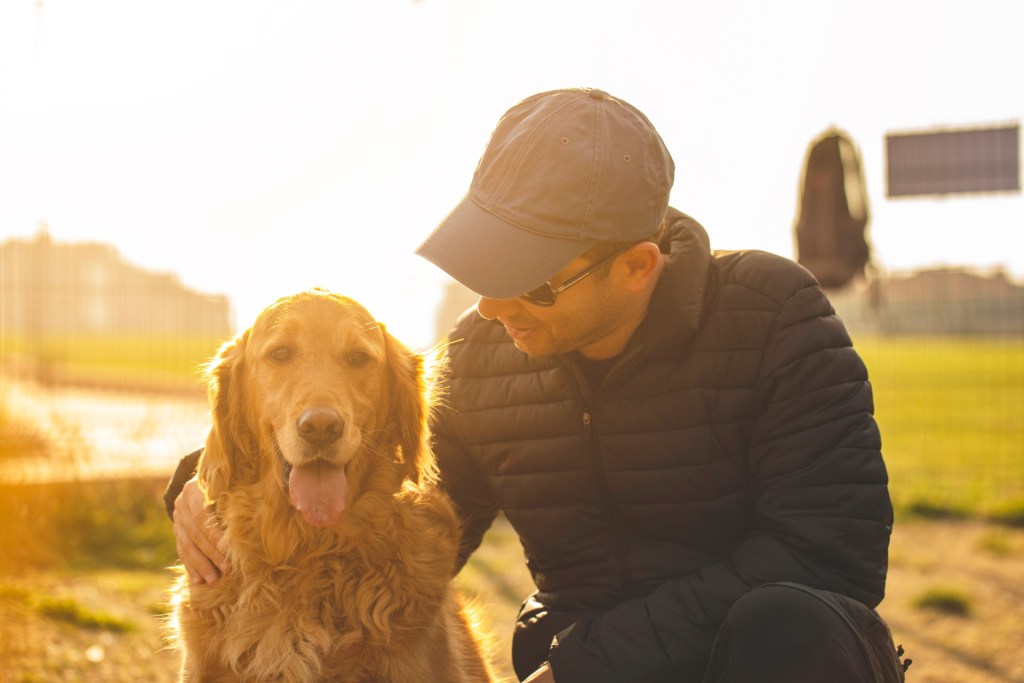
Here are the necessary steps on how to train your golden retriever to go potty outdoors or in a designated spot.
• Decide where and when your puppy needs to go. It’s essential to establish a consistent routine to help your puppy learn.
• Set an alarm to take your puppy out or to its spot. Offer praise and treats each time your puppy is successful.
• If you catch your puppy going to the bathroom in the wrong place, gently command “no” and move your puppy to the right place.
• When your puppy finishes in the right place, offer treats and praise.
• Never withhold water to help train your puppy. This is unhealthy and dangerous.
• Stay consistent and be realistic about your puppy’s training. Your puppy will need time to get things right.
• Stick with the positives so your puppy doesn’t associate bad things with going to the bathroom. If you only punish your puppy, it may hide to go to the bathroom to avoid the punishment.
Gentle, positive training works
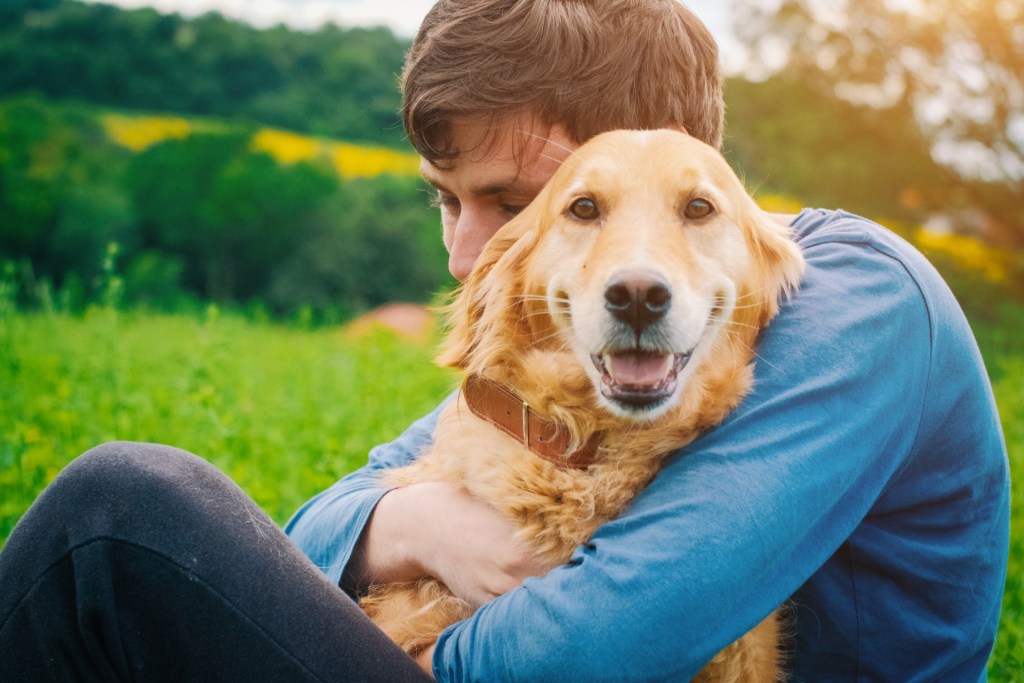
Golden retrievers want to please you. They’re intelligent family dogs, and with the right mixture of patience and consistency, you should have your puppy trained sooner rather than later. If it doesn’t seem to be happening, take a look at your methods to see if you can do something different to help it along.
The training process may take patience, but goldens are highly trainable dogs. Your puppy is ready to be part of the family and needs a little encouragement to understand the rules and behavior you want to see. Don’t be intimidated by the training process. It’s time to bring your puppy into your household as a full member.
